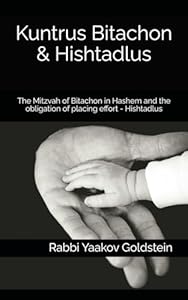Saying Parshas HaMun:[1]
Its proper[2] for one to recite daily[3] the paragraph of the Mun [heavenly bread] in order to strengthen ones trust [i.e. Bitachon] in G-d who provides ones food on a daily basis.[4] Alternatively, it is recited in order to strengthen one’s belief [i.e. Emuna] that all of one’s food comes to him with Divine providence[5], as G-d decided to give one portion of Mun per family, and those who took more, had their portion decrease to the allotted portion, while those who took less had their portion increase to the allotted portion.[6] [Thus we see that whatever G-d decides to give a person is what he will get no matter if he tries to get more or less.]
The custom today: Practically, the custom is to no longer recite the Parshas Haman prior to Davening.[7] However, some recite it every day after Davening as a Segula for Parnasa.[8] This is not the Chabad custom.[9]
A Segula for Parnasa: The Jerusalem Talmud states that whoever recites Parshas Haman is guaranteed to have no lack of income, and so is recorded in many Poskim Rishonim and Achronim.[10] Accordingly, some recite it every day after Davening as a Segula for Parnasa.[11] Likewise, there exists a Segula to recite Parshas Haman on the Tuesday of the week of Parshas Beshalach.[12] While the Rebbe makes mention of reciting Parshas Haman daily as a Segula for Parnasa, he concludes that it does not apply in all times and all places.[13] |
________________________________________________
[1] Admur Kama 1:10, Basra 1:9; Michaber 1:5; Tur 1:5; Sefer Hamanhig Shabbos 44; Tashbeitz Dinei Tefila 256; See Piskeiy Teshuvos 1:16; Likkutei Sichos Vol. 26 pp. 111-120 in length for the differences between the first and second version of Admur
[2] Lit. “Tov”
[3] Regarding saying it on Shabbos: Some write that it is to be said even on Shabbos. [Beir Heiytiv 1:9; Implication of Sefer Hamanhig Shabbos 44; Likkutei Sichos ibid according to Kama ibid] See Likkutei Sichos ibid p. 114 that according to reason of Basra ibid it may not be said on Shabbos as its Bakashas Tzerachav
[4] Admur Basra 1:9; Taz 1:4; See Likkutei Sichos ibid
[5] Admur Basra 1:9; Taz 1:4; Beis Yosef 1; See Likkutei Sichos ibid
[6] Admur Kama 1:10; Levush
[7] Piskeiy Teshuvos 1:16 based on Arizal in Hakdama Shaar Hakavanos; Maharam Rikanti in Taamei Hamitzvos; Yifei Laleiv 1:24; Orchos Chaim Spinka 1:7
The reason: This is based on the teachings of the Zohar which states that one should not make a request for his own needs prior to prayer. [Zohar Pinchas p. 226]
[8] See Noheig Katzon Yosef Dinei Hanhagas Kol Yom 34 in name of Sefer Hayashar of Rabbeinu Tam; Meil Tzedakah 761; Yifei Laleiv 1:24; Mishmeres Shalom 14:2 in name of Rav Pinchas of Koretz; Piskeiy Teshuvos 132:14
[9] See Igros Kodesh 12:18, printed in Shulchan Menachem 1:281; In the siddur this paragraph is not brought by Admur and is thus not accustomed to be said by Chabad Chassidim.
[10] Yerushlami Brachos [in unknown page]; Perisha 1; M”B 1:6; Rabbeinu Bechayeh Shemos 16:16; Sefer Tashbeitz Dinei Tefila 256; Meil Tzedakah 761; See Likkutei Sichos ibid footnote 2
[11] See Noheig Katzon Yosef Dinei Hanhagas Kol Yom 34 in name of Sefer Hayashar of Rabbeinu Tam; Meil Tzedakah 761; Yifei Laleiv 1:24; Mishmeres Shalom 14:2 in name of Rav Pinchas of Koretz; Piskeiy Teshuvos 132:14
[12] Oral Segula recorded in the name of the Tzadik Rebbe Mendel of Rimnov, brought in Yalkut Menachem p. 219;
[13] Igros Kodesh 12:18
Other Articles
Peshara versus Din: The Powers and Limits of Pesharah – Part 2
Peshara versus Din: How Dinei Torah’s come to their verdicts – Part 2:[1] The Forms of Compromise in Pesharah Versus the Torah Strict Letter of the Law: The type of compromise authorized in pesharah differs from strict din Torah in three major areas: The evidentiary standard required to determine which
Daily Halacha: Peshara versus Din: How Dinei Torah’s come to their verdicts – Strict law versus compromise – Part 1
Peshara versus Din: How Dinei Torah’s come to their verdicts – Strict law versus compromise – Part 1:[1] Bringing a dispute before a Beis Din (Adjudication) is the formal halachic framework for resolving monetary claims between Jews. The Torah’s civil code—Choshen Mishpat—is grounded in rigorous standards of evidence and tightly
Daily Halacha: Halacha at the Table: Women Serving Men and Being Served by Waitresses (Tuesday, 23rd Shevat)
* This article is an excerpt from the above Sefer Buy in Paperback or Kindle Buy on Apple Books Purchase on our website *As an Amazon Associate I earn from qualifying purchases. WhatsApp Facebook Twitter Telegram Sign up for Daily Distribution Sponsor an Episode Donate Table of Contents Halacha at
Daily Halacha: The Tablecloth Dilemma – A Guide to Meat & Dairy Separation
* This article is an excerpt from the above Sefer *As an Amazon Associate I earn from qualifying purchases. Buy in Paperback or Kindle Buy on Apple Books Purchase on our website WhatsApp Facebook Twitter Telegram Sponsor an Article Table of Contents Tablecloths – A Guide to Meat & Dairy
Daily Halacha: Tying Tzitzis at night: The Halachic Debate and the Chabad Tradition
This article is an excerpt from the above Sefer *As an Amazon Associate I earn from qualifying purchases. Donate Buy in Paperback or Kindle Buy on Apple Books Purchase on our website WhatsApp Telegram Facebook Twitter Sponsor an Article Table of Contents Tying Tzitzis at night: The Halachic Debate and
Daily Halacha: From Sinai to Your Shabbos Table: The Biblical Roots of Kiddush – Part 1 (Thursday, 18th Shevat)
Table of Contents The Biblical Mitzvah of Kiddush – Sanctifying the Shabbos – Its Source, Meaning, and Fulfillment: The mitzvah of making Kiddush on Friday night is one of the most beloved and enduring traditions in Jewish life. It is widely observed across the full spectrum of Jewish sects, including



Leave A Comment?
You must be logged in to post a comment.